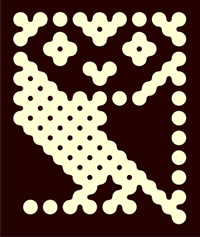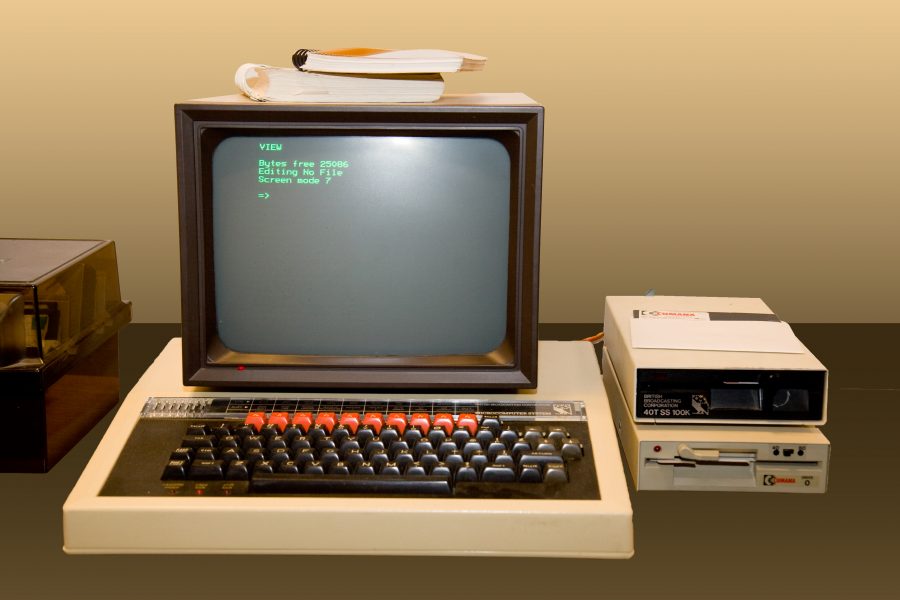The BBC Computer Literacy Project was a national educational programme initiated and lead by the British Broadcasting Corporation during the period 1979 to 1983. The programme was an immense success and created a generation who understood computing concepts, had access to micro computing resources and learned to write their own software code.
The programme (and it was a programme rather than a project as the title implies) had various elements including:
A television series called Micro Live
A dedicated microcomputer platform, the BBC Micro produced by Acorn Computers Limited of Cambridge
30-hour BASIC, a guide to programming in BBC BASIC produced in conjunction with the National Extension College
Telesoftware broadcast by the BBC on the CEEFAX service
There were a number of micro computing platforms in the market or under development in the United Kingdom in the early 1980s. Perhaps chief among them was the Sinclair Spectrum, developed by Sir Clive Sinclair, which retailed for under £200. The BBC had a long list of technical specifications for their ideal micro computing platform and approached seven UK companies who were known to have the capability to design and develop a machine that would meet the BBC specifications. Following a competition, Acorn Computers Limited of Cambridge was chosen to create a dedicated microcomputer for the programme.
The BBC Micro Computer was developed from a prototype known as the Proton, which lead on from Acorn Computer’s earlier Atom computer, both were based upon the popular 8-bit microprocessor the MOS Technology 6502 which competed with the Zilog Z80 processor used in the Sinclair range of microcomputers.
The BBC Micro was a feature rich computing platform with a wide range of input/output devices, and included a revolutionary idea for the time – the ability to network multiple computers together to share data and access to peripheral devices such as printers and mass storage hard disks.
The BBC Micro proved such a popular and successful platform for teaching Computer Literacy that it was adopted as a de facto standard by many schools in the UK and other Commonwealth countries. Chief among the BBC Micro’s educational abilities was the inclusion of a BASIC interpreter. Sophie Wilson of Acorn Computers developed BBC BASIC (Beginners All-Purpose Symbolic Instruction Code); she was also responsible for creating the clear and concise user guides that enabled so many home and educational beginners to start using their first microcomputer.
The BBC Micro enabled schools to teach Computer Literacy and Computing Science, and by the mid-1980s many school pupils were studying for GCE Ordinary (O Level) certificates in Computing.
The BBC Micro also proved an able platform for commerce and industry, many early industrial control systems were based upon the BBC Micro because of its ease of use, rugged design (it had to survive the enthusiasm of school children) and wide range of I/O interfaces such as the Analogue to Digital connection, 8bit user port, 1MHz external bus connection and the IEEE-448 scientific adapter which connected to automated test and measurement equipment.
Acorn Computers spawned a software business, Acornsoft, which produced a wide range of commercial applications for the small to medium business user, including a WordProcessor, Spreadsheet, Database, Graph and Chart packages and a Spelling Checker. These were all market under the VIEW family (View, ViewStore, ViewSheet, ViewSpell) and proved immensely popular in both the home office and small business setting.
In 1994 the BBC commissioned a project to record a modern-day Domesday book and chose the BBC Micro as the platform for giving access to the world’s first public Geographic Information System. Schools, colleges, community groups and volunteers participated in a mass data gathering exercise akin to takin to William the Conqueror’s survey of England’s wealth and land ownership and the results were recorded on 12 inch laser discs that were driven by the BBC Micro Advanced Interactive Video system. This project was an early form of crowd-sourced information combined with maps, photos, audio recordings and many other digital resources.

The BBC has since re-launched the Computer Literacy Project in 2012, commissioning the new Microbit bare bones computing platform for schools. The Raspberry Pi also pays homage to the BBC Micro as its inventor, Dr Eben Upton, first learned computing on the BBC Micro.
Chris Curry co-founder of Acorn
Dr Hermann Hauser co-founder of Acorn
Roger (later Sophie) Wilson developer of BBC BASIC and co-developer of the ARM processor
Stephen Furber designer of the BBC Micro and co-developer of the ARM processor
Ian McNaught-Davis (deceased) anchor for Making the Most of the Micro and Micro Live
Chris Serle (anchor for The Computer Programme TV series)
Andy Hopper designer of many chips in the BBC Micro and a pioneer of computer networking
Micromen, a BBC comic drama about the 8-bit UK Computing revolution of the 1980s
BBC Micro Past, Present and Future. An article published by BCS on the 30th anniversary of the BBC Micro
Domesday Reloaded – the BBC Domesday Project brought to the World Wide Web
The archive of the BBC Computer Literacy Project. This was the national IT literacy campaign that led to the BBC awarding Acorn the contract to build the BBC Micro.
BBC Programmes relating to the Computer Literacy Project.
